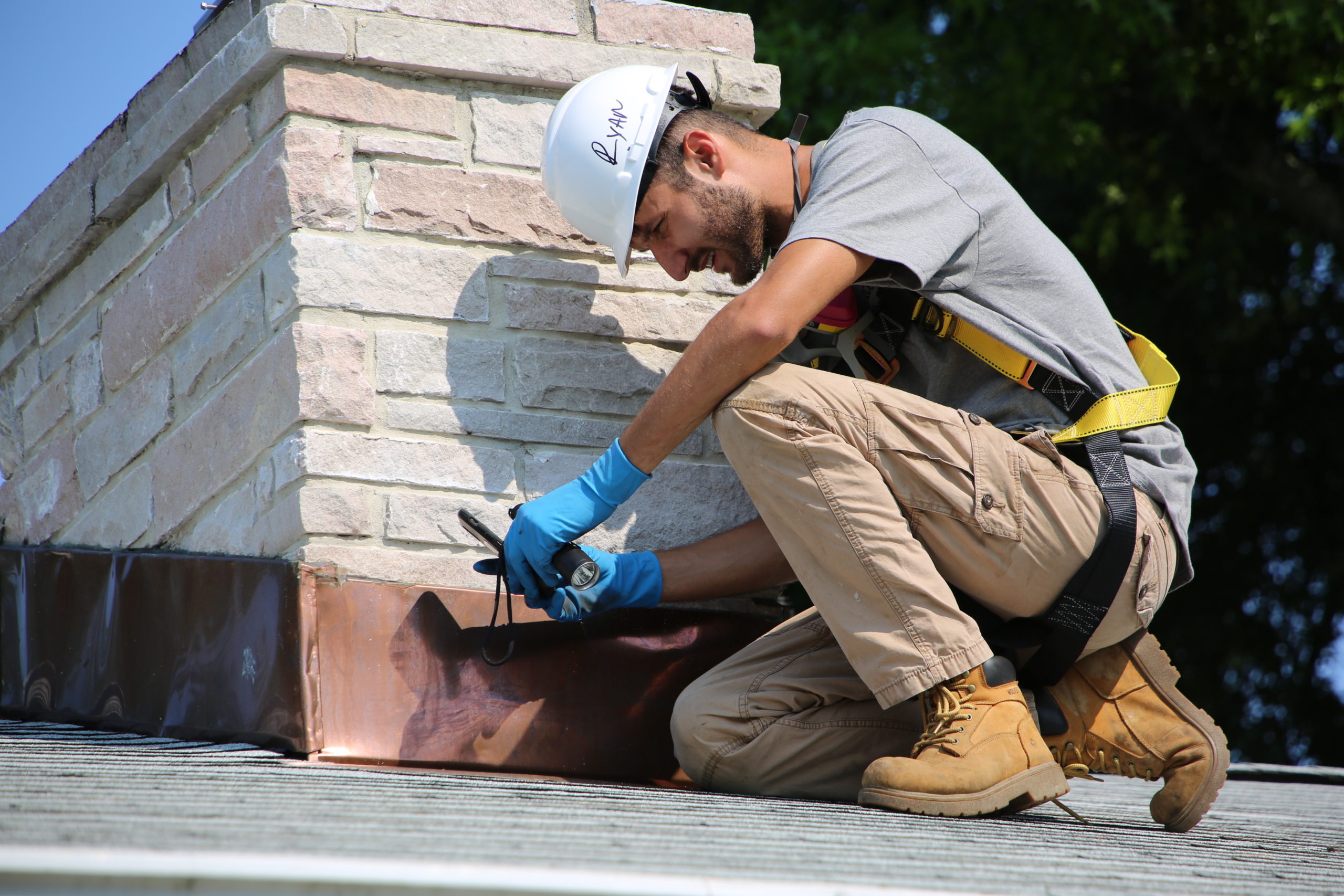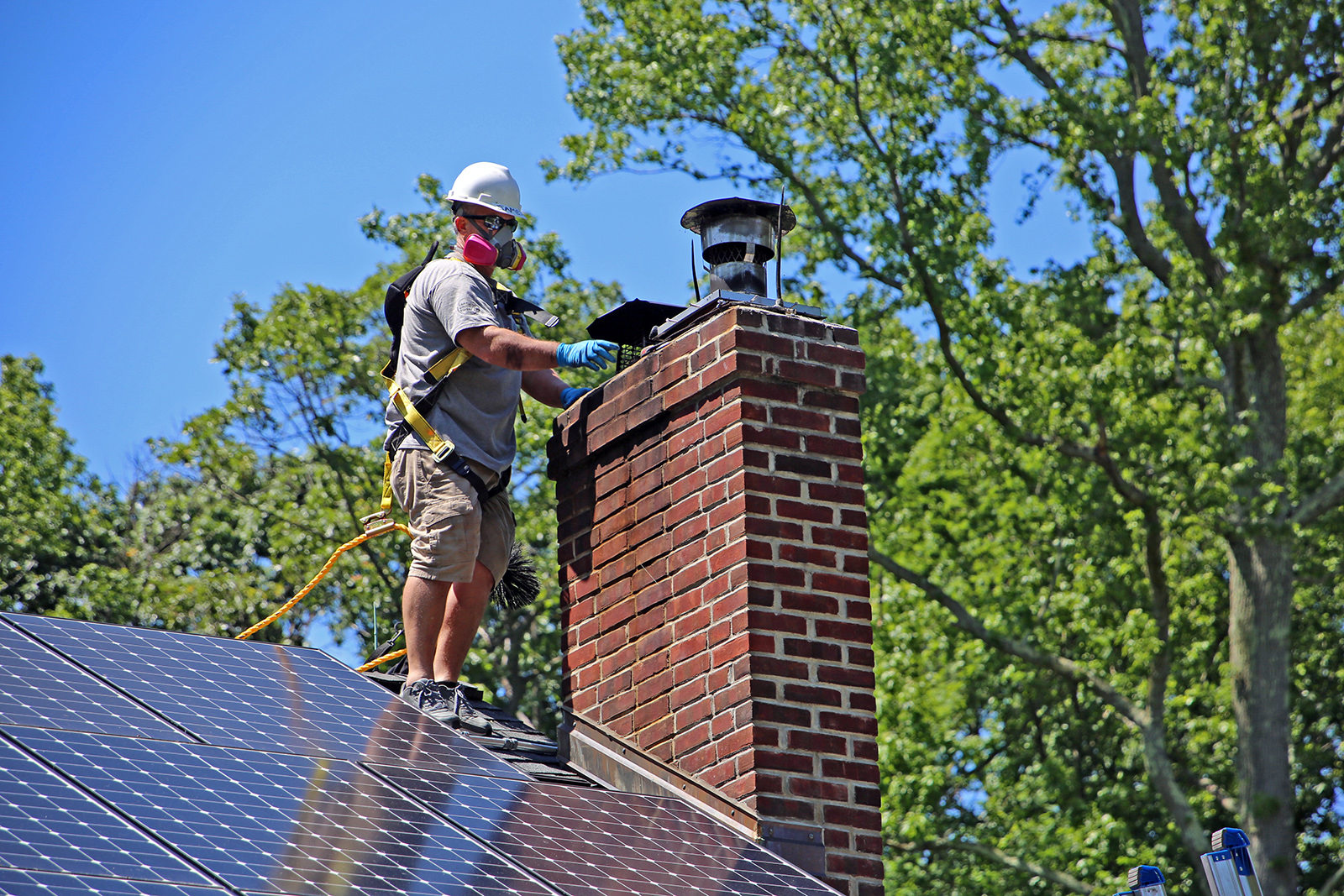Spalling Brickwork: Why it Happens and What You Can Do About It
Chimney masonry is highly vulnerable to moisture, and a serious problem that often results from moisture intrusion is spalling. Spalling means the surface of bricks break and pop off. By keeping up with annual chimney inspections, your chimney technician can spot warning signs and could help prevent spalling. The worst-case scenario is for spalling to be ignored. Learn more about each of these issues below.
 What Causes Spalling?
What Causes Spalling?
The cause of spalling is moisture in the masonry. Many features of chimney exteriors are there for the purpose of protecting the masonry from the damaging effects of moisture. When a chimney is built, the exterior portion on the roof may start out well-protected. Over time, however, components of the chimney end up failing, which allows moisture into the bricks.
For example, the mortar forms a seal that protects masonry. When the mortar deteriorates, repair is needed. If caught in time, no major damage will have been done. In that case, a procedure called “tuckpointing” can be used. Old mortar is removed and fresh mortar is added during the tuckpointing process. Once the job is complete, the chimney has renewed structural soundness and usually looks as good as new.
What if Moisture Gets Into the Masonry?
Once the masonry becomes saturated with moisture, it may not be immediately apparent. Sometimes a chimney leak will cause interior damage, such as water stains on a wall or ceiling near the chimney. As long as the water is in the masonry, the water will freeze and thaw in winter. This causes movement that tears down the integrity of the bricks. Although there are other causes of spalling, the stress placed on bricks in cold, wet climates is the leading cause.
More Causes of Spalling
Spalling can be caused by the construction of the home. Weak architectural structure can put added strain on bricks and mortar. If salvaged bricks are used in construction instead of top-quality bricks, there is a greater tendency for moisture damage to occur and to result in spalling. The way water flows on the roof can cause accelerated deterioration of masonry, as well, because the bricks are exposed to too much water and they become saturated.
Repairing Spalled Bricks
Spalled bricks create a domino effect in which other bricks around them begin to weaken because they are exposed to greater pressure. The way to deal with spalled bricks is to remove them and rebuild that section of the chimney. If moisture damage is discovered quickly, the amount of masonry repair needed can be greatly minimized. When the problem is ignored, a hazard can occur. As a result of spalling, a chimney may start to lean and could collapse, causing injury or death.
Waterproofing / Application of Sealant
At a point when chimney masonry is in good condition, the exterior chimney can be waterproofed, which provides added protection against spalling. Waterproofing can help cut the costs of chimney maintenance, though it’s necessary to reapply the sealant every couple of years or so.
Contact Mercer County Chimney Service Today!
Have you seen small piles of broken masonry in your firebox, on your roof, or on the ground beneath your chimney? Don’t wait to take care of spalling issues because the repair costs keep getting higher, as the damage spreads. Our chimney sweep technicians at Mercer County Chimney Service are CSIA-certified and skilled in tuckpointing and all types of masonry repair. We’re located in Hamilton, NJ, and serve all of Mercer County. Contact us today at (609) 802-5288.



